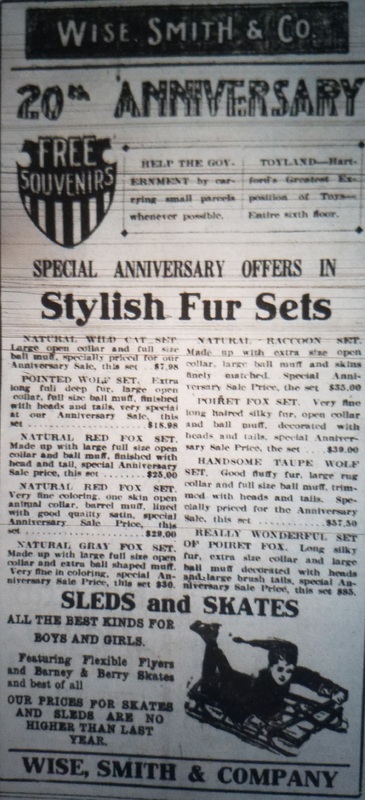20th Anniversary
Americana - Sold Globally, Bought Locally
The Great War was raging for years over in Europe since 1914, and America watched it with rapt attention. Every aspect was scrutinized, and thusly it should not have been any surprise when war spilled across the pond, that America would adopt similar policies that her allies were using. Most Americans gravitated to Great Britain, and for years had more than a passing familiarity with that great nation. Where America had Uncle Sam, there was John Bull in the U. K. Where the United States flew the Stars and Bars, the Union Jack flew in England.
Images of Americana appeared in virtually every place imaginable. From flags painted on the sides of trucks and barns to shields like the one in this panel, if there was flat space, it was likely to hold some symbol to help foster the American spirit. One place that was not forgotten was the department store. Banners were hung, flags were everywhere and you were called to help support your country. Store fronts looked like the 4th of July. Nearly every newspaper and magazine embraced the ideals of America, and the watchword on the street was anything but losing the war.
Part of the concern was over newer immigrants. The most recent wave of immigration came from Eastern Europe: Russia, Germany, Austria. The enemy just happened to be from Germany and Austria, among other places. What made mainstream America nervous was what scholars would call, "hypenated" Americans. German-American, Austrian-American, Turkish-American, even Catholic-American caused some concern. Typically the predominant Anglo-Saxon Protestant American didn't hypenate their origin. They thought of themselves as American. A large amount of work done by the CPI and those who worked in the, let us call it the indoctrination business, was about incorporation of these hypenated-Americans to think of themselves AS Americans. The way to do that is to have everyone invested in the same goals, to get people to think as a nation, and not about ethnicity. This was a major turn for many Americans, and it worked, albeit grudgingly in some places. America went to war with the citizenry it had, not necessarily the citizenry it wanted.
